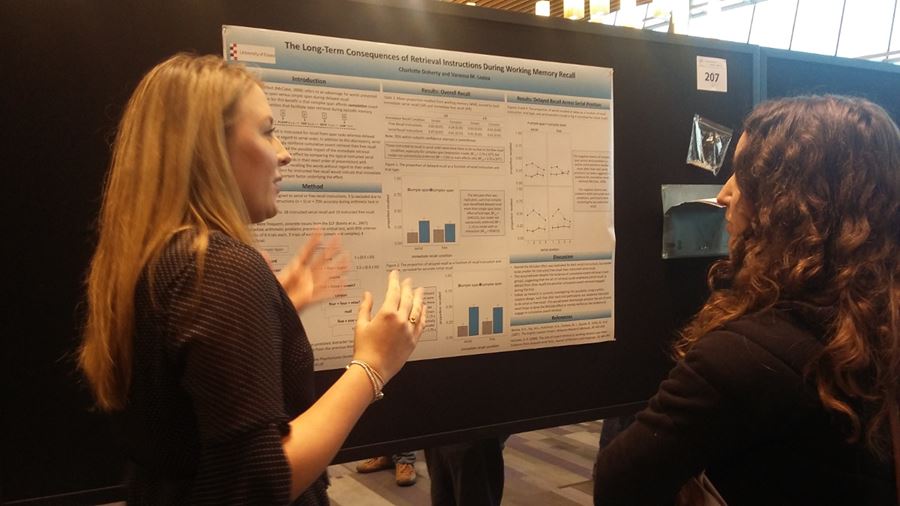Our staff and students had the opportunity to present their latest research findings at the annual meeting of the Psychonomic Society in Vancouver.
Dr Vanessa Loaiza, from our Department, spoke about her latest research and our postgraduate students Paul Howlett and Charlotte Doherty also had the fantastic opportunity to talk about their work and get feedback from leaders in their field.
Paul is looking at how individual differences in working memory are known to correlate with other cognition, such as fluid intelligence.
He said: "I was nervous about presenting at first, but everyone was friendly which allowed me to enjoy the experience. Presenting helped increase my confidence, and the conference has inspired me to continue studying working memory."
Charlotte is looking at how people recall information and the impact of distraction. The experience of presenting her findings is helping to shape the write-up of her work.
“Some of the questions asked required me to think from a different perspective which in turn helped to further my own understanding,” Charlotte said. “This will be of great help when it comes to writing up the discussion for the experiment. Additionally I took the opportunity to ask questions myself regarding advice for the follow up research; I gained a range of different views which have been very insightful."






